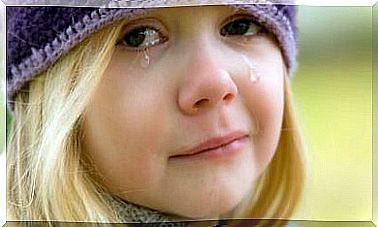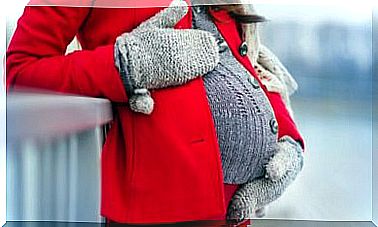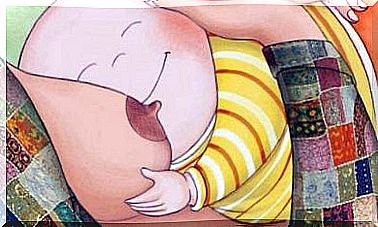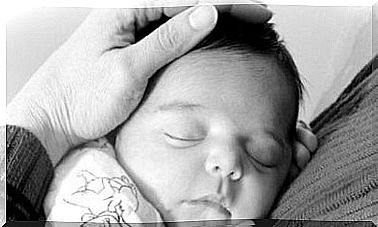My Child Is Allergic To Eggs: What To Do?

You certainly know people who are allergic to certain foods, such as milk, canned foods, or oilseeds. Likewise, some babies have allergic reactions to the egg. So it is normal to ask yourself: how can I know if my child is allergic to eggs?
Eggs are an excellent food to include in meals because they are rich in B-complex vitamins. Unfortunately, some children may not be able to tolerate it, having a variety of allergic reactions.
The positive side of these cases is that many children outgrow this allergy around the age of 5 years. From then on, the little one will be able to eat eggs without any problem.
What does it mean to be allergic to eggs?
A person’s immune system overreacts to egg proteins, as if it were a dangerous substance. Therefore, every time a child consumes this protein, their body produces specific antibodies to fight it. In addition, it also releases chemical substances to protect itself, such as histamine.
This usually happens to children under the age of 5 because their immune system is not yet fully mature. For this reason, the child cannot digest egg proteins and treats them as if they were a harmful invader.
How can I tell if my child is allergic to eggs?
The allergic picture can occur within a few minutes or even hours after ingesting the egg. These allergic reactions usually have the following symptoms:
- On the skin: rash of pimples, redness, eczema and even inflammation.
- Gastrointestinal reactions: abdominal pain, diarrhea, vomiting or nausea, swelling or burning around the mouth.
- In the respiratory system: itchy eyes, sneezing, runny nose, wheezing, difficulty breathing, watery eyes.
- In the cardiovascular system: rapid heart rate, sudden drop in blood pressure and other heart-associated problems.
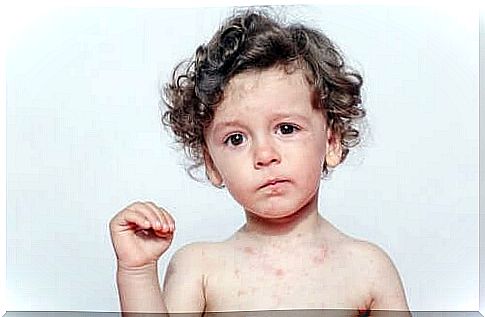
In very few cases, those affected manifest a severe allergic reaction called anaphylaxis, which requires urgent medical attention, as the person has serious difficulties in being able to breathe. This reaction is accompanied by oral inflammation and a sharp drop in blood pressure.
Consult your pediatrician for a safe diagnosis
Egg allergy is detected in babies or during a child’s first meals. This happens when the mother notices that the baby has a rash or is unwell after eating an egg. Thus, it will be necessary to consult the pediatrician and communicate the reactions observed in the child after consumption of this food.
If the pediatrician considers a possible egg allergy, they will likely refer the child to an allergist. This specialist will perform different tests. Among them, a skin prick test.
However, the preventive measure to be taken is the exclusion of the allergen. That is, avoid eggs and egg products or any food that contains them until the baby’s immune system matures. Ingestion can also be resumed when the doctor considers it safe to offer the food again.
beware of vaccines
Egg-allergic children should consult their doctor before taking the vaccines. This is because some of them are incubated in chicken embryo tissue and are very likely to contain a small amount of egg protein.
Therefore, you should talk to your doctor to find out if there is any danger if the vaccine is given to your child. Vaccines with which you should take special precautions because they may contain eggs are the flu vaccine, the MMR vaccine (mumps, rubella, measles) and the yellow fever vaccine.
Preventive measures
For all these reasons, if your child is allergic to eggs, you should take certain precautions. Eggs are present in many types of foods. However, it can sometimes be difficult to determine whether a food contains eggs or not.
Here are some suggestions you can follow to avoid complications:
- Consult a nutritionist to create a personalized eating plan: the diet must provide all the necessary nutrients for the child, while excluding foods prepared with eggs or any of their derivatives.
- Check the ingredients used in the preparation of foods that will be consumed when eating out.

- Print out a list of egg derivatives that may be present in foods and keep it with you for reference if in doubt.
- Make sure your child always has an antihistamine.
- If the allergy is severe, it is advisable to have an epinephrine injector. If, by accident, the child ingests something that contains egg or any of its components and suffers an anaphylactic shock, the injection can be given instantly.
In short, it’s not that difficult to lead a normal life if your child is allergic to eggs. So, just make the child and the people around them aware. Not eating eggs is not something that will stop your child from enjoying food!

